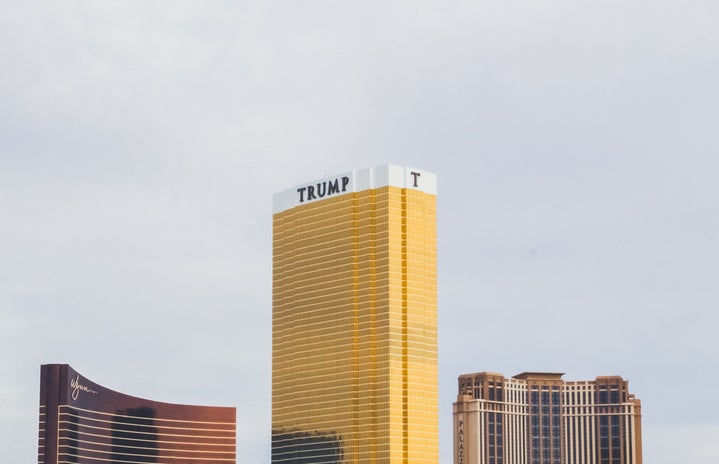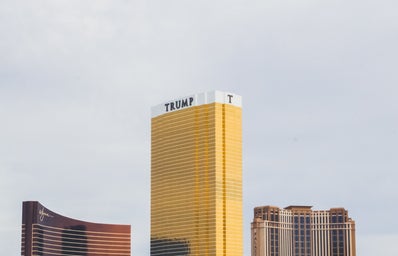UPDATE: Nicaragua has agreed to sign The Paris Agreement on Sept. 19, leaving only Syria and America out of the agreement.
Despite violent opposition from citizens and critical backlash from world leaders, President Donald Trump’s decision to pull the U.S. out of the Paris Climate Agreement on June 1 truly ‘shook’ the world’. Perhaps some things are too good to be true– the fastest reached agreement in history was groundbreaking. And the biggest carbon polluter in the world was the reason behind the speed of this agreement’s resolution.
In addition to Trump’s unfortunate assertion that he serves the “citizens of Pittsburgh, not Paris” in defense of his decision, the President made some bold claims in his speech, warning that the 2015 agreement “imposed wildly unfair environmental standards on American businesses and workers”. Trump cited that the American people would now be free of this “Draconian” international deal. The business tycoon also promised something very problematic: “The United States, under the Trump administration, will continue to be the cleanest and most environmentally friendly country on Earth.” Obviously, this was an alternative fact.
The U.S. became the third country in the world, alongside Syria and Nicaragua to abandon the Paris agreement. In context, Syria did not join the agreement due to their current civil crisis, and Nicaragua evaded it because they felt the agreement didn’t go far enough to protect the environment. It was a bold public move, and an almost shameful act for the U.S. to back out of an agreement, given that even some of world’s poorest countries (that are also struggling with Ebola) such as Liberia and Democratic Republic of Congo signed it.
The $15 trillion superpower in the world withdraws from one of the most prominent international agreements in such an uninformed way– now what?
How the world reacted?
As Trump dismissed the effectiveness of the agreement, the international community stepped in to fill in the U.S.’s shoes almost immediately. After the U.S., China is the second largest political power and polluter in this agreement, followed by India, Brazil and Russia. Leaders in Europe, China and India insisted that they would continue to tackle global warming without the U.S.
While leaders of Germany, France and Italy pledged a joint statement, saying the “Paris Climate Agreement remains a cornerstone in the cooperation”, Indian Prime Minister Narendra Modi vowed that India would go “above and beyond” to combat climate change. Modi noted additionally that, “the Paris agreement is the common heritage of the world. It is a gift that this generation can give”. French President Emmanuel Macron, a staunch defender of climate change, called on the world to help combat climate change in France, with resources at the disposal of anyone who wants to help in a globally televised speech. The French president also criticised Trump, labelling his decision a “mistake both for the US and the planet.”
(See this interactive graph for more details).
Furthermore, 350 U.S. mayors and large business leaders like Michael Bloomberg pledged to curb emission rates by 80% by 2050 in co-operation with the agreement to protect the environment, in spite of Trump’s take on it.
How will this affect world economy?
First up, Trump’s big decision will pose long-term devastating economic consequences for the U.S. In his speech, Trump said that one of the reasons he withdrew from the agreement was to save U.S. jobs, saying that the accord “handicaps the US economy”. According to economists, while in the short term, there might be positive effects for the U.S. economy, there will be rippling economic impacts in the long run. Trump has also dismissed the fact that future generations will be affected by the impact of climate change and only sees his term as a short-run category.
University of California, Berkeley and Stanford researchers published in a paper that, “If future adaptation mimics past adaptation, unmitigated warming is expected to reshape the global economy by reducing average global incomes roughly 23% by 2100 and widening global income inequality, relative to scenarios without climate change.”
Trump’s additional fiery allegations stating that complying with the Paris Agreement would impose unacceptable financial burdens on the U.S. and give unfair advantages to countries like India and China also remain problematic. The president’s “An America Energy First Plan” aims to reduce the price of oil and achieve “energy independence” by tapping into domestic resources, regardless of the environmental cost. While this might boost the American economy temporarily and create jobs for American workers logically, the sheer temporariness of these resources prevent the president and his supporters from asking the bigger questions: where do these jobs go for future workers when these resources run out? Furthermore, where do these workers go when health problems and climate change catch up with us?
Many economists question whether President Trump’s plan will even create jobs to begin with. Some economists say that protecting jobs in the gas, coal and oil industries might come at the cost of increased long-term gainful employment in clean-energy industries.
The sheer ridiculousness of two halves of the world combating this phenomenon is astounding. On one side of the planet, India and China, who President Trump accused of having unfair advantages, are vowing efforts to carry the burden of what should have been the responsibility of the U.S. in this agreement. In contrast, the U.S. is contradicting these efforts. The dubious reasoning of America, a first world country with a $18.57 trillion dollar economy passing on the burden of protecting the planet (a commodity that all countries share) to developing economies, is terrifying.
While America continues to burn fuel, countries like India and Brazil have to now cut down on fuel consumption at certain costs to protect the planet. Where is the equality in that?


